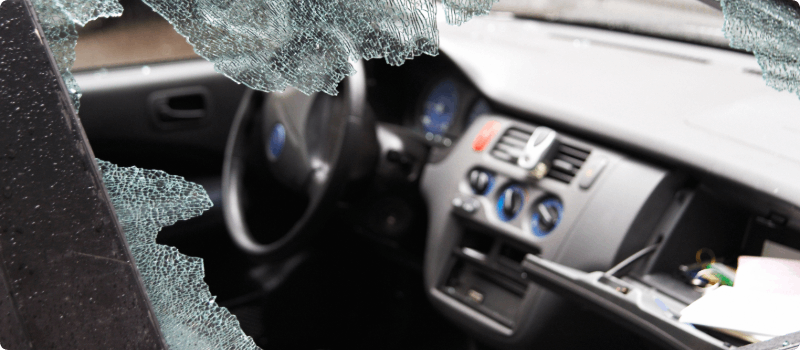Optional Car Insurance Coverages
Learn about optional coverage you should consider for extra protection while on the road.
Updated July 5, 2024 . AmFam Team
Say you’re taking that long-anticipated vacation and will be using a rental car to zip around to new and exciting places. Fun!
But when the salesperson at the rental car counter asks you about buying rental car insurance, you might not know what to do. On the one hand, you’ll want to make sure you’ve got the right coverage so you can enjoy your vacation carefree. But you’ll also want to avoid spending your hard-earned cash on car insurance you might already have.
We understand your dilemma, and we’re here to give you the confidence and know-how to make smart choices when it comes to rental cars and insurance.
Learn about optional coverage you should consider for extra protection while on the road.
If you have a personal auto insurance policy, that coverage will most likely extend to your rental car. That means your rental car can be covered by optional auto insurance coverages you may have like collision and comprehensive car insurance, in addition to your bodily injury liability and property damage liability coverage.
If you’re unsure if your personal auto insurance carries over to rental cars, one of the best ways to learn is to reach out to your insurance agent. You’ll save time and money if you know before renting a car whether your personal auto insurance policy actually covers your rental.
Rental car firms typically offer four insurance coverage options:
If you already have car insurance, it might cover some or all of these options if you’re using the rental car for personal, non-business-related reasons. That’s why it’s important to reach out to your agent first.
In the meantime, here’s a deeper dive into each of the main four coverage types for rental cars. You’ll also learn the options you should consider to make sure you’re protected, while avoiding duplicating coverage you might already have.

Also known as supplemental liability coverage, liability coverage helps pay for the costs of damage to other cars and property, or injuries to others, if you cause an accident in your rental car.
Liability insurance also is the foundation of personal auto insurance, and most states require every driver to carry it. Although your car insurance policy usually is tied to a specific vehicle, it also can also give you coverage when you drive other vehicles. So, if you already have car insurance, any car you drive is typically covered by your existing liability policy — including a rental car.
You might also receive further coverage on your rental as a benefit from your credit card provider if you pay for the rental with their card. This may or may not include collision and liability coverage, which pays the excess beyond what your personal auto policy covers. So, if you carry a minimum amount of liability insurance, paying with your credit card possibly could add coverage to your existing plan.
Quick takeaway: Do you need rental car liability coverage? Probably not, if you have an existing auto policy.
If you have adequate personal auto insurance liability limits and secondary credit card coverage, the answer is usually, “No.” If you don’t own a car or have minimal auto liability insurance, consider the rental car offer.
Personal accident coverage helps pay for the medical costs involved if you or the passengers in your rental car get hurt in a crash.
If you and your passengers are all covered by health insurance, this coverage is probably unnecessary. Medical expenses may also be covered by an inexpensive add-on to your auto policy, so it’s worth talking to your insurance provider if you’re concerned about this type of coverage.
Quick takeaway: Do you need rental car personal accident coverage? Probably not, if you and your passengers already have health insurance or you carry medical expense coverage on your personal auto policy.

Personal effects coverage helps pay for the costs of replacing or repairing belongings in your rental car that were stolen or damaged. If you have homeowners or renters insurance, it most likely will cover your stuff if it’s stolen or damaged in your rental car, subject to your deductible.
A smart preventative measure is to remove your things from your rental car when you’re not in it. If you have very valuable items like jewelry, talk to your insurance agent to increase the limits your personal policy will pay if these items are lost or stolen.
Quick takeaway: Do you need rental car personal effects coverage? Probably not, depending on your existing homeowners and rental coverage.
But if you have high deductibles on personal effects losses, weigh the rental car cost for this coverage versus your potential loss.
Also known as a collision damage waiver, a loss-damage waiver technically is not insurance; it basically gets you off the hook for costs involved if the rental car is stolen or damaged — as long as the damage isn’t caused by speeding, driving on unpaved roads, or other excluded activities in most contracts. It also may cover “loss of use” — which means the loss of income to the rental company — while the rental car is getting repaired.
If you have collision and comprehensive coverage as part of your auto policy, you may not need the loss damage waiver if it’s only limited to paying for repairs or replacing the rental car if it’s stolen.
If you don’t have collision and comprehensive coverage, check to see if your credit card company would cover the costs of theft or damage.
However, when it comes to loss of use coverage, your auto policy or your credit card might not bail you out. Your insurance provider may challenge these charges by asking the rental car company to prove they had no other rental vehicles available while the vehicle you damaged was out of service. But you may want to consider purchasing the loss damage waiver for extra peace of mind.
Quick takeaway: Do you need a loss damage waiver? It depends.
If you have high collision and comprehensive deductibles on your personal auto policy or no coverage at all, you might opt for the rental car damage waiver. Most policies and credit cards also don’t cover you against loss of use, so a loss damage waiver from the rental company can provide peace of mind that there won’t be any extra charges.

The credit card you use to pay for your rental — and the benefits it provides — can be a determining factor for whether or not you purchase a number of these insurance products. So, it's worthwhile to make a thoughtful decision about how you'll pay for your rental.
In addition to the various card benefits, you should consider the amount of credit available on each card. The reason: In the event there are damages, a rental car company is likely to charge your card immediately — and let the coverage sort itself out later. Choosing a card with less available credit will limit what the rental car agency can charge on it.
Finally, be aware that most credit cards will require you to decline any rental car insurance coverage in order to receive benefits. Consider calling your credit card company to learn more about your coverage and credit limits before traveling, too.
Whatever mix of coverage you choose, it’s worth ensuring that the car’s condition is assessed and recorded fairly and accurately before taking ownership of the vehicle. When you go pick it up, take pictures inside and out.
Inspect the vehicle with a rental car employee and be sure the rental agency records all prior damage, including nicks, dents and tears — no matter how small — before leaving the rental agency. If they tell you not to worry about small dings, ask them nicely to please note them on your paperwork anyway. That way you’ll have the paperwork to prove the damage was pre-existing.
Whether you’re off on a big adventure or on your way to relax on the beach, one thing’s for certain: you didn’t travel all that way to talk insurance with the agents at a rental car desk. Spending just a few minutes chatting with your insurance agent before you leave could give you all the information you need to confidently confirm or get extra coverage if needed and get on with the fun!
This article is for informational purposes only and includes information widely available through different sources. This article does not afford, offer, or guarantee any coverage.
JSS component is missing React implementation. See the developer console for more information.